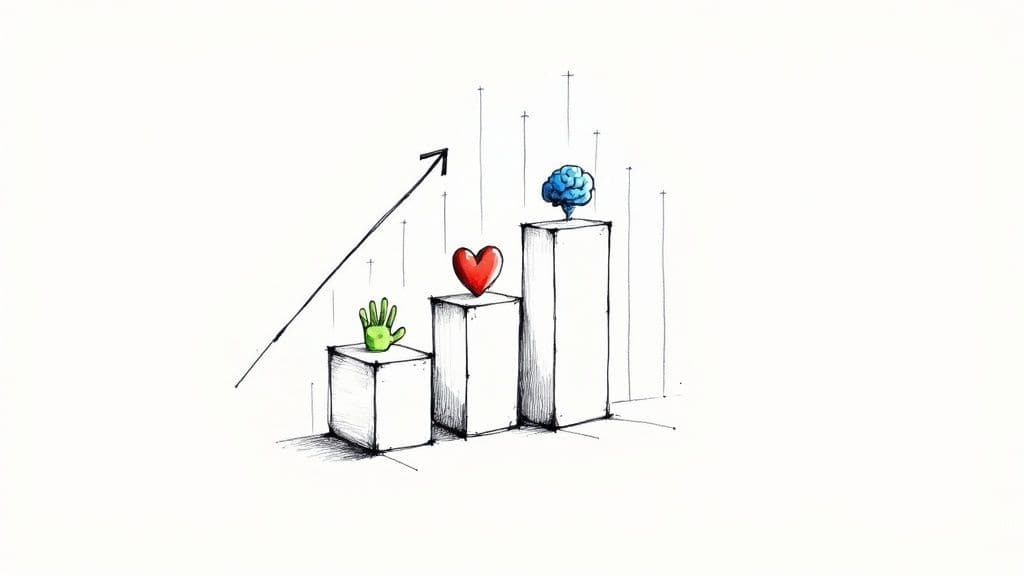The Science of Concentration: How to Train Your Brain to Focus Better
Boost your concentration by training your brain—minimize distractions, practice mindfulness, optimize your environment, and use strategic daily reflections.
Ever sat down to work on an important task, only to find yourself endlessly distracted by notifications, wandering thoughts, or simply an inability to focus? You're not alone. Concentration is a skill that can dramatically improve your productivity, but it requires understanding and training. Let's dive into the science of concentration and practical ways to enhance your focus.
How Your Brain Focuses
Your ability to concentrate primarily involves the prefrontal cortex, the brain’s control center responsible for managing attention and decision-making. This region works closely with neurotransmitters like dopamine, a key chemical that rewards the brain and sharpens focus when engaging tasks feel worthwhile.
When you're deeply focused, your brain reduces activity in its default mode network (DMN), a system involved in daydreaming and mind-wandering. Concentration involves activating attention networks and quieting the DMN, creating a state of deep, productive focus.
The Cost of Distractions and Multitasking
Today's environment constantly challenges our attention. Notifications from social media, texts, emails, and multitasking are major culprits in disrupting our focus. Neuroscience shows multitasking doesn't truly exist—instead, the brain rapidly switches between tasks. Each switch taxes cognitive resources, leading to errors and decreased efficiency.
Recent studies confirm social media notifications can severely impair cognitive performance, pulling attention away even when we don't actively engage with them. The remedy? Focus on one task at a time and minimize distractions to preserve cognitive energy and maintain focus.
Lifestyle Factors That Shape Concentration
Your concentration doesn't exist in isolation—it's deeply connected to your overall lifestyle:
Sleep
Quality sleep is essential. Studies consistently show that poor sleep negatively impacts memory, decision-making, and attention. Aim for 7–9 hours nightly to ensure optimal brain function.
Exercise
Regular aerobic activity significantly boosts concentration and cognitive function. Exercise stimulates brain growth factors and dopamine production, enhancing your brain's capacity for sustained attention and faster reactions.
Diet and Hydration
Balanced nutrition fuels your brain. Moderate caffeine intake can temporarily boost alertness by increasing dopamine availability, but overdoing it can disrupt sleep. Hydration and nutrient-rich foods support optimal neurotransmitter balance, sustaining your focus throughout the day.
Practical Tips to Improve Your Concentration
Mindfulness
Regular mindfulness practices, like meditation or deep breathing exercises, are scientifically proven to enhance focus by reducing mind-wandering. Even a few minutes daily can significantly strengthen your attention networks.
Time Blocking and the Pomodoro Technique
Break your tasks into intervals (25-45 minutes), followed by short breaks. This aligns with your brain’s natural focus rhythm, reducing mental fatigue and increasing productivity.
Minimize Digital Distractions
Turn off unnecessary notifications and use "Do Not Disturb" modes during deep work sessions. Closing extra browser tabs and using full-screen modes can prevent small distractions that cumulatively sabotage your attention.
Optimize Your Environment
Create a workspace conducive to concentration—minimal clutter, comfortable seating, and controlled noise levels (noise-cancelling headphones help!). These environmental cues prime your brain for productive sessions.
Use Tools and Reminders
Incorporate external tools to maintain and improve concentration. Apps like SprintDojo help by allowing you to log daily achievements, review your progress, and prepare a clear, focused agenda for the next day. Using dedicated tools to structure reflection and planning time can dramatically enhance your concentration and productivity.
Improving your concentration is achievable and deeply rewarding. By understanding the neuroscience behind focus and adopting practical strategies tailored to your lifestyle, you can significantly enhance your cognitive performance. Remember, training your brain to concentrate is like strengthening a muscle—the more consistently you practice, the stronger it becomes.
Sprint Smarter. Forecast Every Week.
Log wins. Build momentum. Let AI show you if you're on track to hit your sprint goal—before it's too late.
Join the waitlist and be the first to unlock predictive clarity for your team.

